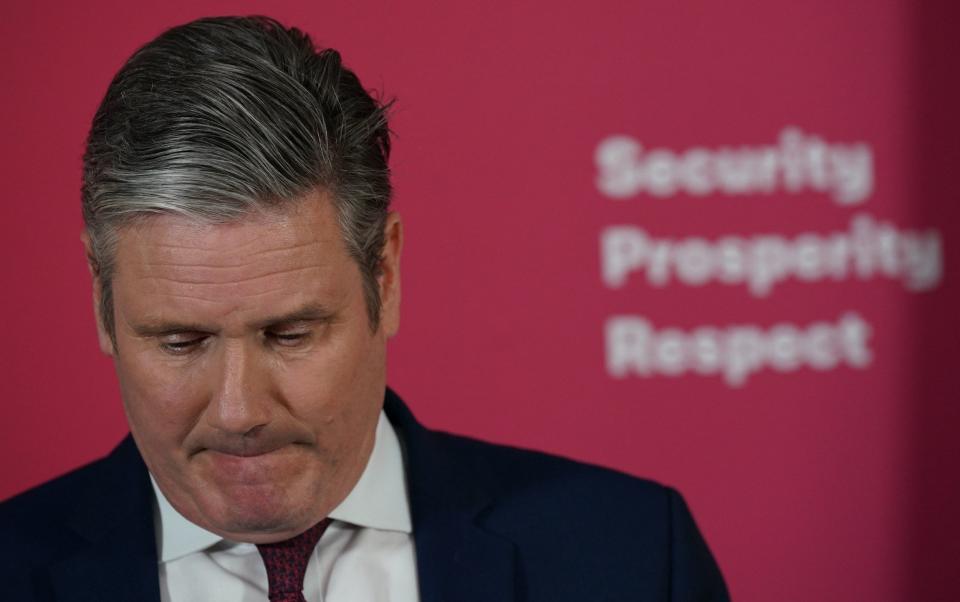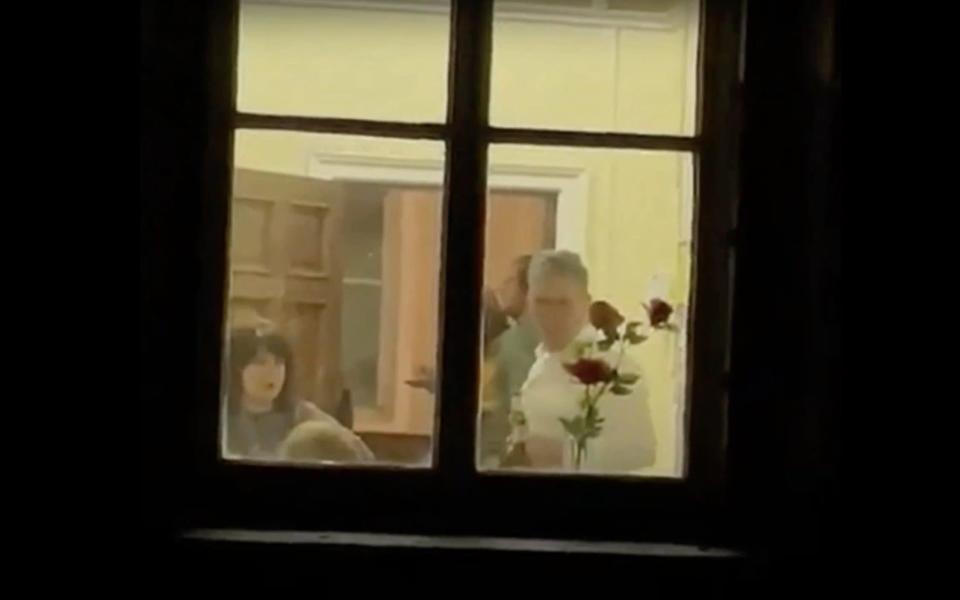Beergate investigation against Keir Starmer ‘needed to maintain public confidence in policing’

The Beergate investigation into Sir Keir Starmer was necessary to maintain public confidence in policing, the Chief Constable of Durham Constabulary has said.
Jo Farrell, who heads up the force that carried out the inquiry, said the decision to launch a full blown investigation was taken because of the “weight of material” passed to police in connection with the case.
She said it was vital her officers examined the allegations against the Labour leader “without fear or favour” so the public could see nobody was above the law and to demonstrate that police could be trusted.
In her first newspaper interview about the Beergate case, which comes on the eve of the Labour Party conference, Ms Farrell said the investigation had been very challenging because of the intense media and political scrutiny her team were placed under.
But she said she was satisfied the probe had been carried out thoroughly and correctly and she stood by the findings.
Sir Keir was accused of breaching social distancing laws when he was pictured drinking beer and eating a takeaway curry with colleagues in April last year while lockdown rules were still in place.

The Labour leader insisted he had done nothing wrong and vowed to stand down if he received a fixed penalty notice, in contrast with Boris Johnson, the then prime minister, who had refused to resign after being fined for attending an illegal gathering in Downing Street.
Durham Police carried out a two month investigation into the allegations against Sir Keir but eventually concluded there had been no breach of the regulations.
The investigation came two years after Durham Police also investigated Dominic Cummings, the former prime minister’s chief advisor, who was accused of breaking the law by driving to Barnard Castle during lockdown.
Ms Farrell said the prominence of the two people accused of wrongdoing meant her officers could not simply ignore the allegations, even though they were only punishable by a minor fixed penalty notice.
She told The Telegraph: “If we think back, we were in a pandemic and that legislation was to prevent people dying so it was very, very serious.
“And people will argue, ‘well it was an £80 fixed penalty notice', but these are prominent, high profile political figures, so it was important that people could have confidence, and could rely and trust Durham Police to investigate and come to the right conclusion.”
She went on: “It was challenging because we were front and centre of every media outlet, with the two very prominent individuals - one on one side of the political spectrum and the other on the other side - and for everybody who emailed me, spoke to me and wrote something on social media, everyone was divided and everyone had an opinion.
“When we were investigating on both occasions of course for every person who supported the outcome there was another half who said ‘you have bowed to political pressure’.”
Ms Farrell said the investigation had been made more difficult because the coronavirus laws had been drafted in haste.
She explained: “Some of the challenge was not only the prominence of the individuals but also this was untested legislation and it was brought in in an emergency in a pandemic and it hadn’t filtered its way through all the layers and some of the ways it was written was at speed and then we were trying to interpret against it.”
Durham Constabulary had initially looked at the claims against Sir Keir when they were first raised but decided there was no need for a full criminal investigation.
But in May following fresh claims and intense media pressure, the force reversed that decision.
Ms Farrell explained why: “We had initially had a look at it but then we were being provided or sent, what some might call evidence, material, and the weight of that material was such that actually we said we now need to do something more significant to satisfy ourselves one way or the other actually has there been any breaches.”
Reflecting on the outcomes, she said: “We investigated both sets of allegations without fear or favour and it was important that I was satisfied that we had done that thoroughly and could stand by the outcomes and it could stand any scrutiny.”
Sir Keir and 16 other attendees at the event were eventually cleared of any wrongdoing with police concluding they had a reasonable excuse for attending the gathering because they were working.
Ms Farrell, who has been in charge at Durham for three-years, said the investigations had proved a distraction for her team, but she said had been proud of their professionalism throughout.
This week Suella Braverman, the new Home Secretary, wrote to all police chiefs, setting out her priorities and saying she wants them to focus on fighting crime rather than on symbolic gestures around diversity and inclusion.
Rainbow flags 'not necessarily political'
But the Durham chief defended her force's support for campaigns such as Pride and dismissed the suggestion that displaying rainbow flags was merely a symbolic gesture.
She said: "I think that we have to be representative and we have to be relevant. But we then walk quite a difficult line in some of this because people want to pull us into what becomes a political debate. I think some of this is about 'what does your neighbourhood policing footprint look like and how relevant and legitimate are you in advance?
"I don’t necessarily agree that the rainbow of the LGBTQ+ is political. There are people within our communities who want to know that our organisation is alive to some of the challenges they might face, that we are empathetic, that we are sensitive and that we can be relied upon.
"I've always been a big supporter here across the whole county around Pride that we show ourselves as an organisation that people can come to, because on occasions people in minority groups find themselves on the receiving end of harassment and whatever it is."
Durham has regularly been rated as the country’s best performing force and in a week when the Metropolitan Police was criticised by Her Majesty’s Inspectorate of Constabulary, Fire & Rescue Services (HMICFRS) for a string of poor performances, Ms Farrell said Durham’s success proved the need for "high efficiency" and "low bureaucracy”.
While she has pledged to put more officers on the beat to help drive down crime, she admitted it was a difficult balance to strike because so many offences require office-based investigators.
She said: “I absolutely welcome the uplift, the additional 20,000, which means 226 here, but that still doesn't take us back to 2008 levels so that is one really important issue.
“Also the world has become more complex, particularly around digital technology and that has presented us both challenges in terms of us policing the virtual space as well as the physical space.
“But it has also created opportunities around lines of inquiry, so every phone, every Alexa, every doorbell all offer opportunities for us to gather good strong evidence in the cases we are investigating.”

 Yahoo Sports
Yahoo Sports 